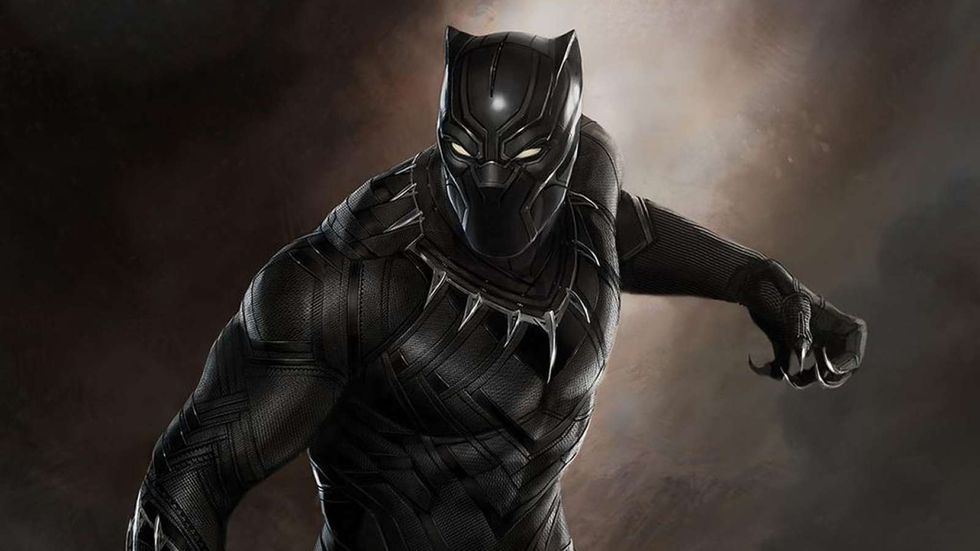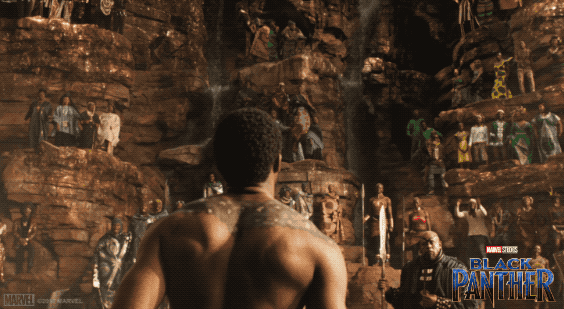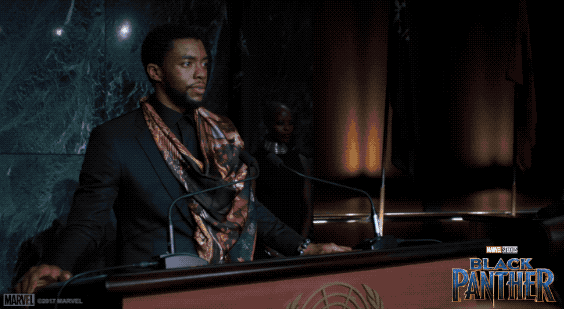Black Panther, the recently-released Marvel film has broken Box Office records scoring $25.2 million in Thursday-at-midnight previews on the night of its release. Premiering during Black History month, the film starring an all-black cast has attracted many people of different African and African American cultural backgrounds to theaters. Despite its obvious celebration and praise of African culture and development, Black Panther sends a powerful message in more ways than one. Its message touched upon many themes throughout the film, some even emphasized in several scenes.
1. Misrepresentation of Africa in Western Culture
A theme that was touched upon in several instances throughout the film was the misrepresentation of Africa in Western Culture. Throughout the movie, any contact with Westerners resulted in the assumption of Wakanda as a third world country lacking any advanced technology. Prior to knowing Wakanda’s true state, the white American character Everett Ross (Martin Freeman), believed it to be poverty-stricken and primitive in its development, for example.
2. Disconnect between modern Africans and African Americans
One of the key issues discussed in the film and the reason for the conflict between Erik Killmonger (Michael B. Jordan) and the Black Panther, T’challa (Chadwick Boseman), is that there seems to be no interrelatedness between native Africans and African Americans. Though related ancestrally, Killmonger makes the point that the relationship seems to be severed and the kinship disregarded by the Wakandas. As a result, there is a sense of abandonment that lingers within the African American community.
Whereas Wakandans thrive in the continent of Africa, it seems as though they have isolated themselves from their American descendants—leaving them to fend for themselves in dealing with the oppression of the Western world.
3. The Benefits and Dangers of Sharing Knowledge
Spoiler Alert—Wakanda is the most technologically advanced nation in the world (in the movie, of course). However, its people choose to keep the source of all their advancements, vibranium, under wraps because exposing it to the world could result in the mass production of weapons that could destroy other nations. Such a power could cause the earth’s inhabitants to simply obliterate themselves. However, Wakanda’s technology could also mean huge medical advancements for the world—healing major injuries or diseases, as well as economic prosperity, global efficiency, and innovation. This is the dilemma T’challa, the new king of Wakanda faces throughout the film—either maintain tradition and isolate Wakanda’s knowledge, or reveal the technology and simply play the role of gatekeeper.
4. Women in Technology and the Military
I can’t be the only one who noticed the science guru in the movie was Shuri (Letitia Wright), Tchalla’s sister. Not only did Shuri propel invention, advancement, and science forward in Wakanda, but she seemingly acted alone in doing so. In addition, T'challa’s right hand and Wakanda’s general Okoye (Danai Gurira) was also a woman. There seemed to have been an emphasis throughout this film on the power of women, in particular, women of color.
Among these themes were many others, including that of generational, systematic oppression of African Americans, the cultural richness in Africa, diaspora, tradition, and others.
Aside from empowering people of color, specifically black people, Black Panther was effective in delivering something to think about. Adhering to the true essence of what a film should be, Black Panther entertained and conveyed a message.





















